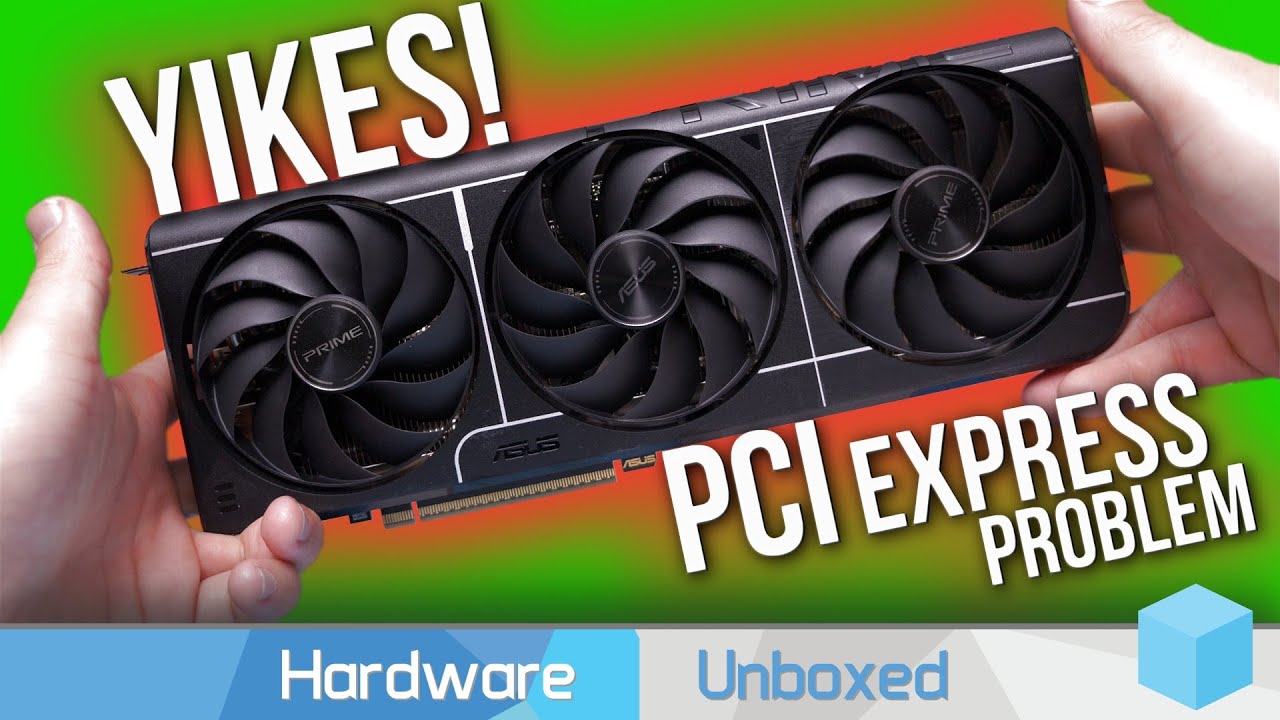The video demonstrates that the GeForce RTX 5060 Ti 16 GB significantly outperforms the 8 GB version in modern gaming, especially at 1440p, due to its larger VRAM and full PCIe lane support, which prevent bottlenecks caused by reliance on slower system memory. It warns consumers against buying the 8 GB model, as its limited VRAM and PCIe bandwidth lead to severe performance issues and premature upgrades, making the 16 GB variant the better choice for future-proof gaming.
The video explores the impact of PCI Express bandwidth on the performance of the GeForce RTX 5060 Ti graphics card, particularly comparing the 8 GB and 16 GB VRAM versions. The main focus is on how exceeding the VRAM capacity forces the GPU to use system memory via the PCIe bus, which introduces significant bottlenecks due to limited bandwidth and increased latency. The presenter explains that while the 16 GB version comfortably handles modern gaming at 1440p, the 8 GB model struggles significantly, especially when using PCIe 3.0 and 4.0, due to its limited eight PCIe lanes, which restrict bandwidth further.
Testing across various games reveals stark performance differences between the 8 GB and 16 GB models. In titles like Dragon Age: Valgard, F125, Indiana Jones: The Great Circle, and Marvel’s Spider-Man 2, the 16 GB card consistently delivers highly playable frame rates, while the 8 GB version suffers from severe frame drops and stuttering. Even upgrading the PCIe interface from 3.0 to 5.0 only marginally improves the 8 GB card’s performance, which remains far behind the 16 GB model. This highlights the critical role of VRAM capacity and PCIe bandwidth in maintaining smooth gameplay at higher resolutions and quality settings.
The video also emphasizes that these 8 GB GPUs are not designed for 1080p esports titles only, countering some marketing narratives. Both AMD and Nvidia have promoted the 16 GB variants as capable of ultra-fast 1440p gaming, but the 8 GB versions fall short of this promise. The presenter criticizes the practice of selling two vastly different performance configurations under the same product name, which can mislead consumers and cause confusion. He argues that the 8 GB models are essentially crippled for modern AAA gaming and will necessitate earlier upgrades.
Furthermore, the presenter advises gamers to avoid 8 GB GPUs unless they exclusively play esports titles at low settings, recommending the 16 GB models for anyone seeking future-proofing and better performance in AAA games. The additional VRAM and full PCIe lane support in the 16 GB cards ensure that game assets remain on the faster local memory rather than shuttling back and forth with system RAM. This results in more stable frame times, higher average frame rates, and overall better gaming experiences.
In conclusion, the video serves as a strong warning against purchasing 8 GB versions of mid-range GPUs like the RTX 5060 Ti in 2025. Despite their lower price, these cards suffer from severe performance issues when VRAM is exceeded, and even the fastest PCIe 5.0 interface cannot fully compensate for their limitations. The presenter stresses that consumers should prioritize VRAM capacity and PCIe bandwidth to avoid frustrating gameplay and premature hardware upgrades, reinforcing that the 16 GB version is the sensible choice for modern gaming demands.
